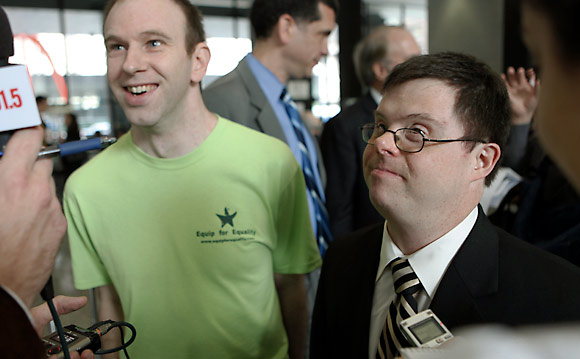Leonard Pitts' syndicated column appeared in The Chicago Tribune about the use of cameras to record police activity in light of the November 18 UC Davis incident, where a police officer doused seated occupy protesters with liberal amounts of pepper spray. He poses the question: what if there had been no cameras to record the incident?
The use of video or audio recorders to record police conduct without prior consent is currently illegal in Illinois. The case of ACLU v. Alvarez seeks to challenge the Illinois Eavesdropping Act -- the law which prohibits citizens from recording public conversations with police in public places. The ACLU of Illinois asserts that it is a First Amendment right to be able to gather information with a recording device, and to be able to disseminate that information to the public.
With regards to the UC Davis incident, in addition to growing concerns over police interactions with occupy protesters over the last couple of months, Pitts writes:
If you are not interfering with police or otherwise breaking a law, what legal or moral pretext do they have to stop you from filming them? Indeed, those who are doing their work honorably — in other words, the majority — should welcome that, as it protects them from spurious claims of brutality, just as it protects citizens when the brutality is real.
That is the moral of this story and the reason we should be thankful cameras recorded what happened at UC-Davis that day. What police did to those students was an absolute crime.
Getting away with it would have been one too.
Read the whole article.
